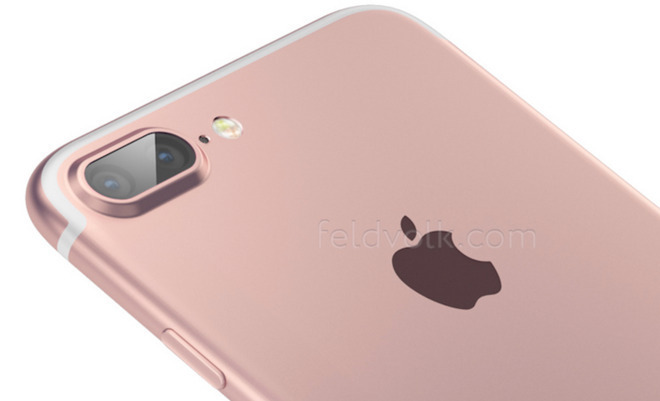Apple's next-generation handset will be a big win for chipmaker Intel, as the so-called "iPhone 7" series will reportedly ditch Qualcomm LTE modems for certain models, including AT&T in the U.S.
Citing unnamed sources, Bloomberg reported on Friday that the AT&T "iPhone 7," along with some other models around the world, will use Intel modems. Presumably Intel's technology will be found in certain GSM models, as the report said the Verizon version, as well as handsets sold in China, will continue to use Qualcomm modems.
Friday's report throws weight behind a recurring rumor claiming that Intel could supply as many as 50 percent of the modems for Apple's next-generation iPhone. Both the "iPhone 7" and "iPhone 7 Plus" are expected to ship in September.
Last year, it was said that Apple sent an engineering team to Intel to help the company optimize its 7360 LTE modem for use in a future iPhone.
And Qualcomm CEO Steve Mollenkopft said earlier this year he believed a major client would turn modem orders over to another firm.
Apple routinely uses multiple suppliers to diversify its supply chain. Doing so affords Apple the ability to meet significant demand for its products, while also achieving lower prices through competing component makers.
End users are unlikely to notice any difference between an Intel modem or one made by Qualcomm. Apple, though, may have work to do to ensure there's no substantial difference in terms of power consumption or network performance.
 Neil Hughes
Neil Hughes








 Charles Martin
Charles Martin
 Christine McKee
Christine McKee
 Wesley Hilliard
Wesley Hilliard
 Malcolm Owen
Malcolm Owen
 Andrew Orr
Andrew Orr
 William Gallagher
William Gallagher
 Sponsored Content
Sponsored Content







23 Comments
Interesting! I have to wonder if Apple ever intends to make their own solution.
It'll be interesting to see the performance of the final product.
Where I sit right now, I fluctuate between 2 and 3 bars of AT&T LTE service. Always. This was the case with iPhone 6, and now 6s.
I wonder how that will improve, if at all, with a new Intel LTE modem, which seems to be pegged for specific GSM models.
Just like the move to Intel processors, this is Apple putting in the work to abstract modem functions. I.E. So they can move onto their own chips/others should it suit them. I imagine Qualcomm have had it "a bit sweet" up until now. I'm curious to see if basic performance(e.g. time to hang up) will improve and not just data rates or battery consumption.
I still resent the fact the Intel subsidized manufactures to start making thin laptops like Apple immediately or they would lose huge market share.